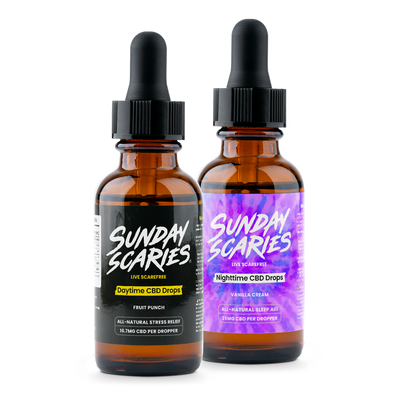
Overcoming Meeting Anxiety: Strategies to Help Young Professionals Dominate the Workplace

Ah, meetings. The necessary evil in every young professional's life. From those team huddles to the oh-so-exciting boardroom gatherings, we all have to endure them. It's that time where we get to showcase our ideas, do some networking, and engage with our lovely colleagues.
But let's face it, if you're anything like me, attending meetings can be a real nightmare. The anxiety kicks in, an automatic stress response triggers, and suddenly our performance takes a hit.
Meeting anxiety doesn't discriminate. While it can haunt even the most seasoned executives out there, it can take a toll on the mental health of anyone.
So for those who do fear public speaking and meeting participation, let's dive into the depths of meeting anxiety. We'll explore the key points, its causes, identify its symptoms, and of course, share some kickass strategies so you can dominate it like a boss.
What is Meeting Anxiety?: The Shaky Voice in Your Head

Meeting Anxiety embodies the feelings of nervousness, unease, or apprehension that people experience in anticipation of, during, or after participating in meetings, whether they are in a professional, academic, or social context.
Before work meetings you may have this nagging little voice in your head whispering negative thoughts like, "You're going to forget your words", "Everyone's judging you", or my personal favorite, "You're gonna spill the coffee on your pristine white shirt."
Now put those voices in a blender, add a dash of clammy hands, racing heart, upset stomach, and the inability to make a sentence without sounding like you've just ran a marathon.
Voila! You've got yourself a classic case of meeting anxiety. It's like your regular anxiety decided to dress up in a business suit and ruin your 9 to 5.
Adulting is so freakin' awesome, isn't it?!
Recognizing the signs of meeting anxiety is the first step in learning to deal with it. The fear of being judged, being unable to articulate oneself, or making mistakes are common contributors to meeting anxiety.
However, it is vital to understand that meeting anxiety is normal and that you are not alone. It is a common experience and can be managed with practice and the right coping strategies.
The 7 Symptoms of Meeting Anxiety: Signs of Self-Doubt
1. The Case of the Vanishing Vocabulary:
Ever walked into a meeting room and suddenly your brain decides to fart on you? The words you so carefully rehearsed in front of your bathroom mirror have pulled a Houdini and left you stammering.
This is a classic symptom of meeting anxiety, where your thought process gets disrupted, and articulating your ideas becomes as challenging as understanding your office printer machine.
2. Mute Mode Engaged:
Very similar to "The Case of the Vanishing Vocabulary", but have you ever had a kickass idea and suddenly, you're hit with the inability to speak at all? Like a ninja, this symptom sneaks up and slides into your meeting agenda, turning you into a mute statue.
It's as if your vocal cords decided to take an impromptu vacation to the Bahamas and left you stranded in the middle of a brainstorming session. This is another classic symptom of getting anxiety in meetings.
3. Racing Heart:
You're just sitting in a chair, not running a marathon, yet your heart is pounding as if you've stolen the last donut from the break room. An increased heart rate is your body's response to stress.
It's like your heart's shouting, "Hello, I didn't sign up for this!". This can happen in virtual meetings as well and is one of the worst anxiety symptoms because it's a tell tale sign you're nervous.
4. Sweat Fest:
Suddenly, it feels like you're in a sauna. Your palms are sweaty, and you're perspiring even though the office AC is set to 'Antarctica.' Excessive sweating is your body's not-so-subtle way of saying it's not coping too well with the situation.
Other participants may be looking at you wondering if you just jumped in pool.
5. Upset Stomach:
Feeling butterflies in your stomach is cute when you're in love, not so much during a meeting. If your stomach is performing acrobatics when you're about to present, this could be a sign of meeting anxiety and can prevent your active participation in them.
6. The Shakes:
Can't hold a piece of paper without making it look like a mini earthquake? Muscle tension and shaking are telltale signs of anxiety. It's not just because you drank too much coffee, these are the pre-meeting jitters making your skin crawl.
7. The Absent-Minded Professor Act:
The agenda is being discussed, important decisions are being made, and wait...what were we talking about again? If you find your mind wandering to your weekend plans or that weird dream you had last night during meetings, this could be a sign you need to start managing anxiety.
It's as if your brain decided to go on a little escapade, leaving you with the attention span of a goldfish. Lack of concentration, ladies and gents, is another silent but oh-so-deadly symptom of meeting anxiety.
Remember, these anxiety symptoms are not a judgment on your capabilities, they're just signs that your body is reacting to a stressful situation.
Recognizing them is the first step towards managing your anxious feelings. So next time, when you're about to present, and your heart starts to race, take a deep breath, remember you're not alone and channel that inner boss energy.
Expert Quotes on How to Overcome Meeting Anxiety
Dr. Olivia Remes, Anxiety Researcher, University of Cambridge:
"Focus on what you can control in the meeting and let go of what you can't. You cannot control others' reactions but you can control your actions. Preparation is key. The more prepared you are, the more confident you'll feel."
Dr. Susan Jeffers, Author of 'Feel the Fear and Do it Anyway':
"The only way to get rid of the fear of doing something is to go out and do it! Pushing through the fear is less frightening than living with the fear which comes from the feeling of helplessness."
Paula Davis-Laack, Stress & Resilience Expert:
"Practice mindfulness. Being present in the moment can help you stay focused and calm during the meeting. Instead of worrying about what you're going to say next, just listen to the conversation."
Brenda Bence, Executive Coach & Author:
"Reframe your thoughts. Instead of thinking 'I'm afraid of messing up', tell yourself 'I'm excited to share my ideas'. Changing your mindset can significantly reduce feelings of anxiety."
Mike Sill, Entrepreneur & Anxiety Guru:
"The negative thoughts and anticipatory anxiety before a meeting never go away. The key is to look at this 'stress ball' like a toy. Instead of letting it be a wrecking ball on your meeting performance, learn how to catch it, juggle it, and kick it away like a soccer ball."
Strategies for Dominating Work Meetings: Cure your Social Anxiety

Listen up because it's time to switch from panic mode to beast mode.
Let's explore a list of strategies that can help you transition from being a wallflower to becoming a meeting maestro, effortlessly handling social anxiety like a seasoned pro.
Calming Techniques: Zen Mode On
1. Deep Breathing:
This isn't just about inhaling and exhaling. Deep breathing is a fine art—a soothing symphony of inhales and exhales, if you will. It's about taking a long, slow breath in through your nose, filling your lungs, and feeling your belly rise. Hold your breath for a moment, then breathe out slowly through your mouth or nose, feeling the belly fall.
Think of it as a relaxed seesaw, up and down. Repeat this several times before your next meeting. A fun fact? Your anxiety can't swim, so you'll be drowning it in a deluge of calm and peace.
2. Visualization:
Here's where your fond childhood memories of daydreaming will come in handy. Before your next meeting, close your eyes and imagine yourself in a serene setting - maybe a beach, a forest, or even a fortress of solitude for you Superman fans out there.
Picture yourself acing that meeting, speaking confidently, and having your colleagues applaud your ideas. This not only prepares you mentally but also boosts your confidence, turning you into a meeting superstar.
3. Progressive Muscle Relaxation:
This one is for those of us who carry our tension in our muscles (a.k.a everyone). Start by tensing a group of muscles, say your hands, as you breathe in. Hold it for five seconds, then release as you breathe out. Feel that tension melting away like butter on a hot skillet?
Repeat this with different muscle groups, and by the time you're done, you'll be as loose and relaxed as a jellyfish, disarming that anxious response before your meeting begins.
Practicing Public Speaking: Mastering the Art
1. Join a Public Speaking Club:
Ever heard the phrase 'practice makes perfect'? There's no better place to practice than in a public speaking club such as Toastmasters.
Here you'll get to hone your skills in a supportive environment, minimize distractions, receive constructive feedback, and perhaps even develop a taste for the limelight (you show-off you)! This type of support group is like a gym membership, but for your communication skills.
2. Emulate Great Speakers:
Got a favorite TED Talk? Or perhaps there's a podcast host whose style you admire? Start by mirroring their style, their pauses, their delivery. It's a bit like learning to play an instrument by playing your favorite songs.
Sure, it might feel a bit like copying at first but over time, you'll develop your own unique style - a beautiful melody all of its own.
3. Start Small:
If the thought of speaking in public gives you the heebie-jeebies, start small. Try giving a mini-presentation to your pet, your plants, or even your reflection in the mirror (don't worry, we aren't judging).
Once you're comfortable, level up to a sympathetic audience - think a friend or a family member.
Then, continue to expand your audience until one day you're rocking that boardroom presentation, and all those professional setting fears seem like a distant memory.
Preparing for Meetings: The Jedi Way
1. Knowledge is Power:
Get a leg up on meeting anxiety by arming yourself with information. This is akin to studying the blueprints of the Death Star. Learn all you can about the topics to be discussed, research background information, and familiarize yourself with the attendees.
When you walk into that meeting room, you won't be stepping into an ambush.
You'll be a Jedi, lightsaber in hand, ready for battle. So feel relaxed and focus solely on what you can control.
2. Rehearse, You Must:
Just like Jedis spend years honing their skills with the lightsaber, you too should rehearse for your meeting.
Run through your presentation, clear up any unclear expectations, practice answering questions, and make sure your delivery is as memorable as Chewbacca's growls.
Remember, even the most seasoned Jedi didn't master the Force in a day. You can also try to record yourself and then listen carefully for mistakes on the replays.
3. Mental Force-Field:
In the Star Wars universe, Jedis use the Force to protect themselves. In work meetings, your 'Force' is a positive mindset.
Expect the unexpected and be ready to take it in your stride. If a question stumps you or a comment throws you off, maintain your composure and steer the conversation back on track.
You are a Jedi. A little disturbance in the Force doesn't make you lose focus.
Relaxation Methods: Chill Mode Activated
1. Mindfulness Meditation:
Welcome to the world of mindfulness, where you become the master of your mind, not its apprentice. This is all about being fully present in the moment, observing your thoughts and feelings without judgement.
Sounds like a fancy term for 'chillax', right? So, sit comfortably, use those deep breathing exercises, and allow your thoughts to come and go without getting carried away.
With practice, you'll be able to maintain this calm and tranquil state even when you're under the spotlight in a meeting. Because, let's be honest, nothing screams 'chill' quite like being Zen amidst a barrage of questions.
2. Yoga:
No, yoga isn't just about twisting and turning your body into a human pretzel. It's a full-body relaxation technique that combines physical postures, breath work, and meditation to reduce stress and anxiety.
Plus, you get the added bonus of becoming flexible enough to pat yourself on the back. So, before that virtual meeting, roll out your yoga mat and channel your inner yogi.
3. Soothing Sounds:
Ever noticed how the sound of rain or waves crashing on a beach instantly calms you down? That's because our brains associate these sounds with relaxation and tranquility.
So, create a playlist of relaxing sounds - it could be nature sounds, soft music, or even white noise. Listen to this before your upcoming meeting to trigger relaxation and reduce anxiety.
You'll be walking into work with the tranquility of a quiet forest, ready to tackle anything that comes your way.
Benefits of Overcoming Meeting Anxiety: When "I Feel Anxious" Becomes a Thing of The Past'

1. Stay Present:
While meeting anxiety can often cause a whirlwind of negative thoughts about past blunders or future scenarios, overcoming this anxiety enables you to stay present and stay focused in the moment.
This means fully engaging in discussions, actively listening to other participants, and contributing valuable input, as opposed to being trapped in a mental time-travel loop.
2. Nervous System Health:
Constant anxiety keeps your nervous system functioning in high-stress mode, which can lead to a variety of health concerns. Overcoming meeting anxiety helps to regulate this, promoting a more balanced sympathetic nervous system.
This means saying goodbye to those pre-meeting worries and hello to a calmer, healthier you.
3. More Confident Speaker:
The transformation from anxiety-burdened to anxiety-free often results in a more confident presenter. When you're not consumed by fear, you're free to focus on delivering your points clearly and confidently.
Ditch your self-conscious old self and cue the standing ovation.
4. Improved Body Language:
Anxiety can wreak havoc on your nonverbal communication, resulting in everything from awkward fidgeting to closed-off postures. To overcome meeting anxiety you need more controlled, confident body language.
Think open postures, steady eye contact, and a firm handshake – basically, you'll be the epitome of "I've got this".
5. Positive Thoughts:
Without the dark clouds of work meetings hanging over you, your mind is free to focus on positive thoughts. This shift in mindset reduces self-doubt and encourages a more positive self-perception so you don't feel anxious.
Replace those "I can't do this" thoughts with "I'm going to ace this". You're not just a glass-half-full kind of person, you're the one pouring the water for the other participants.
How Meeting Anxiety can Affect the Sunday Scaries
Ah, Sunday, the day of rest, right? All is calm, all is bright - until you remember that Monday is lurking around the corner, ready to pounce with a calendar filled with back-to-back meetings.
Suddenly, your peaceful Sunday begins to look more like a horror movie, with each tick of the clock bringing you closer to the dreaded Monday.
We call that the Sunday Scaries my people, and it has a nasty effect on your mental health.
Your mind enters a frenzy as you envision every possible doomsday scenario for the meeting environment.
Will you forget your lines mid-speech?
Will your PowerPoint presentation decide to embrace its dark side and malfunction?
Will you accidentally call the stern-faced CEO by the wrong name?
The queue of questions is longer than the line at Starbucks on a Monday morning.
So, instead of spending Sunday binging your favorite shows or braving the outdoors, you're trapped in a vortex of worry, rehearsing your presentation till the words lose all meaning and second-guessing every point you plan to make.
This, dear friends, is how meeting anxiety turns the Sunday Scaries into a full-blown horror fest.
Instead of letting your parasympathetic nervous system (often referred to as the "rest and digest" system because it plays a crucial role in promoting a state of relaxation, recovery, and energy conservation) get rattled, slow your heart rate, recite a positive affirmation and let your body counteract the "fight or flight" response to the Sunday Scaries.
After all, who wouldn't trade a day of worry for an extra day of weekend bliss?
How CBD Can Be Your New Secret Weapon Against Meeting Anxiety

Ever heard about this cool kid on the block called CBD? No, it's not the latest app your nerdy cousin is developing.
It's Cannabidiol, a compound found in the cannabis plant that's been making headlines for its potential health benefits. "But wait, cannabis?" you may ask. "Aren't we meant to be professional here, I can't take that for work?"
Well, CBD is the non-psychoactive part of the plant. So, no, it won't make you laugh your ass off and eat munchies in your meeting room. What it can do, however, is help manage those pre-meeting jitters and subdue your negative thoughts.
Here's the simple science: CBD interacts with your body's endocannabinoid system, which is partly responsible for mood regulation.
So, when you're all worked up over a meeting, CBD can help bring some balance. It's like having a personal doorman for your nerves, only letting in the chill vibes.
Picture this: you're about to present your big idea to the team, and your heart is doing its best drum solo impression. With a little help from CBD, you could feel more like you're telling a funny story to your friends at a barbecue rather than facing an intimidating crowd.
Now you may fail a drug test when taking CBD products, since many products are "Full Spectrum" and contain traces of THC.
But if your work is cool with it then put a bottle of inconspicuous gummies in your office desk drawer, or just pop them out of your medicine cabinet before a virtual meeting if you WFH.
So, if you're tired of your meeting angst dressing up as stage fright and stealing the show, it may be time to give CBD a go.
It might just be the secret ingredient you need to turn your Sunday Scaries into Sunday Funday, and transform your meeting room into your very own stage.
And remember, CBD stands for Cool, Bold, and Dynamic – just like you.
Conclusion: Gain Confidence With Self-Care, Preparation and Practice
As mentioned earlier, meeting anxiety can be debilitating as hell, but it’s essential to recognize that it’s not something that cannot be managed.
Being self critical while engaging in avoidance behaviors is not the answer.
Recognizing the signs of meeting anxiety, understanding what contributes to it, practicing self-care, implementing relaxation techniques, and pursuing an ongoing process in dominating your fear of public speaking is where it's at.
By executing the strategies discussed in this blog, young professionals can overcome social anxiety at work while improving their communication skills, fostering positive affirmations and increasing their confidence.
All of this will lead to better professional opportunities.
In conclusion, overcoming meeting anxiety is vital to excelling as a young professional in the modern workforce.
By taking the necessary steps to overcome meeting anxiety, young professionals can unlock their potential, boost their confidence, and dominate the workplace.
I hope you found this article helpful and that you'll start to manage anxiety like the boss you are.

 CBD Gummies
Stress Relief
CBD Gummies
Stress Relief
 Extra Strength CBD Gummies
Stress Relief
Extra Strength CBD Gummies
Stress Relief
 Vegan CBD Gummies
Stress Relief
Vegan CBD Gummies
Stress Relief
 CBD Gummies for Focus
Focus Boost
CBD Gummies for Focus
Focus Boost
 CBD Candy
Mood Lift
CBD Candy
Mood Lift
 CBD Daytime Oil
Stress Relief
CBD Daytime Oil
Stress Relief
 CBD Sleep Oil
Sleep Aid
CBD Sleep Oil
Sleep Aid
 CBD Dog Treats
Stress Relief
CBD Dog Treats
Stress Relief
 Side Piece Bundle
Stress Relief
Side Piece Bundle
Stress Relief
 Rando Bundle
Stress Relief
Rando Bundle
Stress Relief
 Sunrise & Sunset CBD Oil Bundle
Stress Relief
Sunrise & Sunset CBD Oil Bundle
Stress Relief
 5mg Delta-9 Gummies
Euphoria
5mg Delta-9 Gummies
Euphoria
 10mg Delta-9 Gummies
Euphoria
10mg Delta-9 Gummies
Euphoria
 THC Gummies for Sleep
Sleep Aid
THC Gummies for Sleep
Sleep Aid
 Day & Night THC Gummies Bundle
Stress Relief
Day & Night THC Gummies Bundle
Stress Relief
 Mushroom Gummies
Focus Boost
Mushroom Gummies
Focus Boost
 Shilajit Gummies
Focus Boost
Shilajit Gummies
Focus Boost
 Sunday Scaries Hat
Sunday Scaries Hat
 Sunday Scaries Dad Hat
Sunday Scaries Dad Hat
 Sunday Scaries T-Shirt
Sunday Scaries T-Shirt
 Sunday Scaries Pocket Tee
Sunday Scaries Pocket Tee
 Sunday Scaries Tank Top
Sunday Scaries Tank Top
 Sunday Scaries Sweatshirt
Sunday Scaries Sweatshirt
 Sunday Scaries Blanket Jacket
Sunday Scaries Blanket Jacket
 Sunday Scaries Sweatpants
Sunday Scaries Sweatpants



